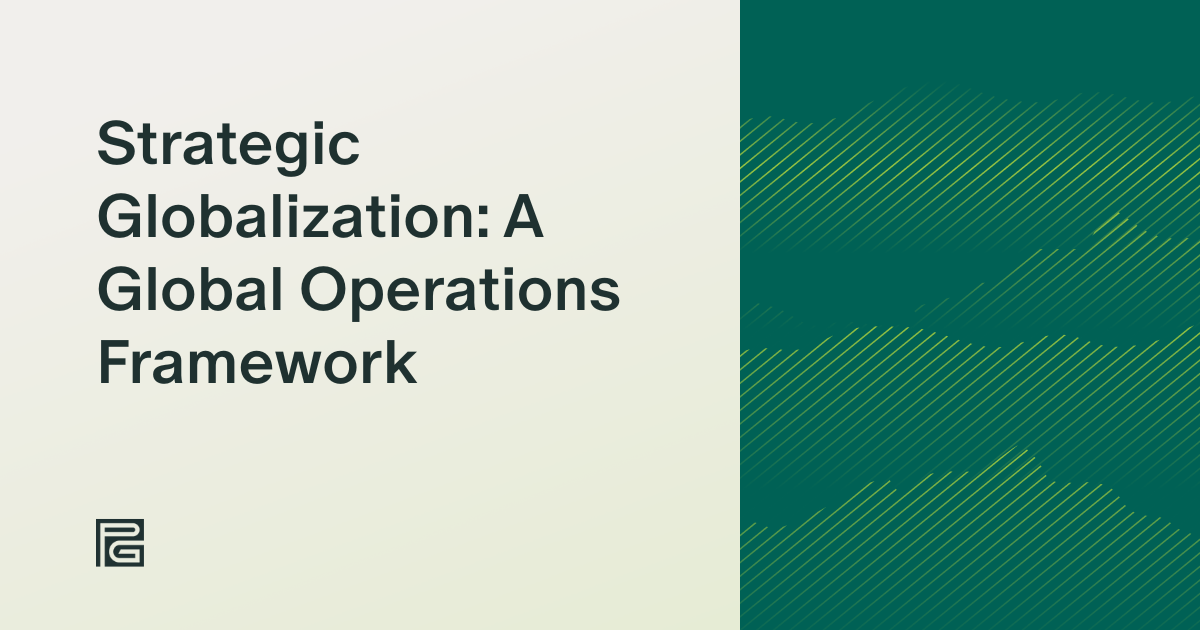More than a definition — a discipline
Ask five leaders what “globalization” means and you’ll get five different answers.
Growth. Market entry. Influence. Expansion. Risk.
That’s because Strategic Globalization doesn’t have a single definition. It isn’t a product, a process, or a playbook. It’s a discipline — one that adapts to the needs, ambitions, and realities of each organization.
At Piedmont Global, we define Strategic Globalization less by what it is than by what it does: it creates the conditions for organizations to lead across borders, cultures, and systems with fluency, confidence, and staying power.
It’s built on a core belief: success in today’s world isn’t about choosing between local and global — it’s about mastering both, simultaneously.

Strategic Globalization builds systems that are adaptable, scalable, and built to last.
Let's break it down
Strategic
Dictionary: Relating to the identification of long-term or overall aims and interests and the means of achieving them.
Our lens: Strategic means intentional, integrated, and forward-looking. It’s not just about efficiency in the moment — it’s about embedding foresight, values, and capabilities into the long-term fabric of an organization.
Globalization
Dictionary: The process by which businesses or other organizations develop international influence or start operating on an international scale.
Our lens: Globalization is more than being present everywhere. It is about the ability to influence across geographies, communities, and contexts — to be valuable everywhere, in every season, in times of growth and in times of challenge.
A Living Definition
The thing we love most about Strategic Globalization? It’s not static. It evolves with you. Every organization faces different opportunities and challenges, and Strategic Globalization adapts to both.
For some, it means faster market entry.
For others, it’s embedding cultural fluency into delivery.
For others still, it’s building resilience in systems that must perform under pressure.
Flexibility is what makes Strategic Globalization powerful.
It’s not a one-size solution. It’s a discipline that evolves with you, wherever you lead, whatever the stakes.
Built to evolve
The decision may happen in the room, but it’s shaped by everything leading up to it: the context, the alignment, the fluency. Strategic Globalization creates those conditions so every moment of impact rests on a strong foundation. It’s the connective tissue that allows organizations to grow across cultures, systems, and markets — without losing coherence.
Piedmont Global’s embrace of Strategic Globalization reflects what our clients already know: we’re not reactive vendors. We are partners who help shape strategy, influence outcomes, and drive growth. We align with your mission and embed alongside your teams — arming you not with more noise, but with more power.

Leading you through what’s next
Strategic Globalization isn’t theory — it’s practice.
It’s the systems, foresight, and partnership that turn ambition into durable outcomes. And Piedmont Global, we are at the forefront, helping you prepare for your moment and shape the moments to come. Leading you to, and through, what’s next.
Frequently asked questions
Strategic Globalization is the practice of designing and managing organizations, systems, and experiences to operate effectively across cultures, markets, and geographies. It integrates strategy, intelligence, and human experience to create measurable global impact.
A Strategic Globalization Organization is an evolved model of partnership that extends beyond traditional language services. SGOs help enterprises align their cultural, operational, and technological strategies to thrive globally.
Cultural fluency is the ability to understand and act appropriately across cultural contexts. Cultural fluency is a cornerstone of effective Strategic Globalization.







